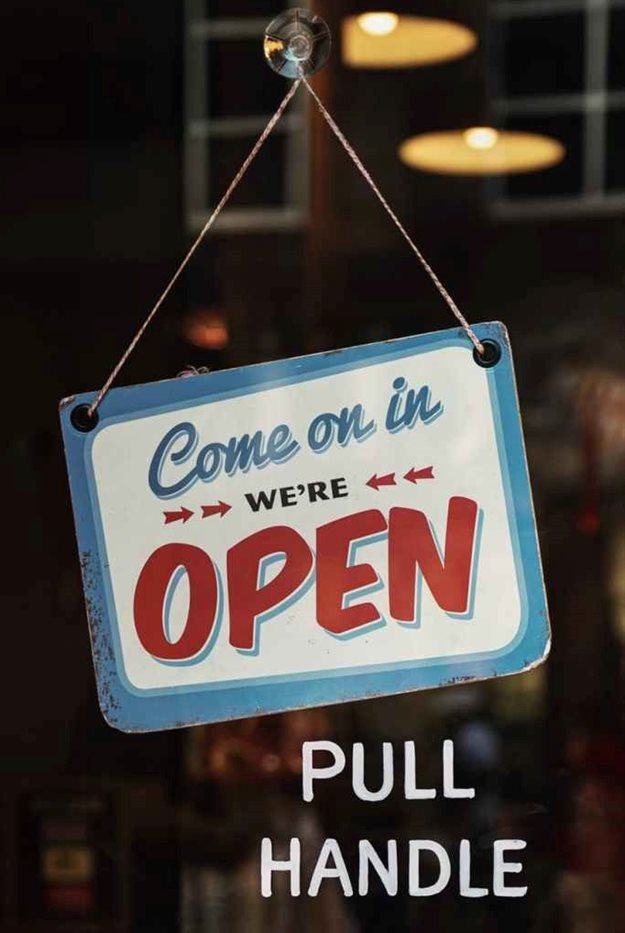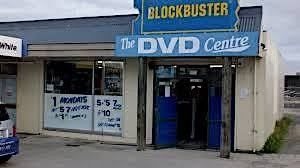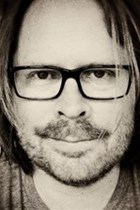
Top stories






More news


Marketing & Media
Ads are coming to AI. Does that really have to be such a bad thing?














It would be easy to say, “Well, that’s show business.” And, I suppose it is. There are plenty of businesses and industries that have disappeared without the faintest hint of romance.
However, I thought I would make an argument for Blockbusters. Just going with the flow and accepting the inevitability of the future seemed too easy. What the hell, it’s my blog. Let’s give it a go…
I felt this strange pang that this little store in a tiny town had a lesson I should try and find. I found it while reading about the store. I stumbled on this question from a journalist to the owner, Chris Cucurullo.
The question was, “How did you stay open for so long?” I mean, it’s 2020. We have Netflix, Amazon Prime and all the rest. You have to say that’s a pretty good run.

His simple answer was that the relationships and conversations he had with his customers kept the store open. His customers came to see him and chat about the films just as much as watch the films themselves.
In short, new DVDs would come in and he would have a chat with regular customers about what the new releases were. Sounds obvious, but think about that for a moment... What modern companies do this well? Through this, Chris built relationships that have obviously lasted a long time – 26 years, in fact.
Every time those customers walked into the store, there would be a little bit of excitement and delight. They didn’t know what to expect. They didn’t know what would be waiting for them. The randomness is what made people go back. They didn’t know what they were going to find. It made search exciting. There was happiness when you walked in.Today, we have an algorithm that suggests what you might like based on what you have watched before.
In essence, you find more of what you already like. And that becomes more defined over time. You become your history. But there is very little excitement about finding new things. It made me think that perhaps accuracy makes discovery boring. How do you find what you are not looking for?
Will randomness have to play a bigger role in keeping things interesting?
Who hasn’t scrolled mindlessly through oceans of content and found nothing to watch? And then somebody tells you the series Succession is amazing at work and you watch that. A human recommended it. Humans watch things, machines don’t.
The simple truth is, we trust other human beings because they actually care about things. What will a human being recommending a product be worth in the future? With endless amounts of content, will that be how we choose what to watch tomorrow? Will other human beings be the ultimate search engines in the future?
Here is another thought: Last year, Apple shipped over 30-million watches to the world. That is almost 10-million watches more than all the Swiss watches combined. It would seem usefulness could be the new luxury? Will the terms handmade or bespoke lose their value? Or, will human hands make a product more valuable?
I keep thinking about the human factor going forward. How will it fit into the endless automated solutions of customer service? Think about how long we wait on the line to speak to a call centre. We seem to value talking to people over anything else. We want people, even if they are not always the best or easiest option.
Here is a great example of this: Boeing and other companies already have pilotless planes. They would eliminate the main reason for plane crashes, pilot error, and if this idea became mainstream it would make flying way cheaper.
The Swiss bank UBS did research and surveyed 8,000 people asking if they would consider flying in a plane without a pilot. 83% said no. Even though it is safer and cheaper. Now, I am sure this will eventually happen purely because of cost. The view is it could save airlines $30-billion dollars. But be honest, would you still want a pilot?
How much extra would you pay to have a pilot on board? Could having actual pilots be a new type of luxury? Economy, business, first class and now, ladies and gentlemen, introducing pilot class.
People have a mysterious, priceless value. It made me think about the surprise and delight those customers would have felt in little old Dargaville. One human being turned a chore into an event. An experience that customers looked forward to every week.
The human factor is a contradiction. Even though people make mistakes and often are the reason an error occurs, we want them over machines. That ‘humaness’ (my word) is what we trust.
You don’t like a stand-up comedian because he tells a joke accurately. You like him because you trust his humanity. The laughter comes from connecting with another human being.
Perhaps that is the lesson from the last Blockbuster in New Zealand: Yes it died. However, a video store stayed open until f*cking 2020 because its owner Chris understood one thing. In the end, sadly, it is all he had and it wasn’t enough to fight the future.
What he understood was that consistency and accuracy are a service. A service that can become boring, expected and invisible. Service should just happen. It often doesn’t but it should.However, surprise and delight are an experience. People want them. They need them. They want to connect. Humans want to feel special. They want something to talk about the next day. That is why they come back. Not because you made their life correct or accurate.
Because you gave them something they didn’t expect. Because you made their life a little bit more interesting. You made their day better.
Human beings will always be the difference, simply because we can be. People will always be the ultimate luxury. After 26 years the last Blockbuster in New Zealand is gone. Yet, its lesson will always remain.
“I think there is just one kind of folks. Folks.” – Harper Lee
